Ep. 56: Sylvia Wulf – CEO of AquaBounty -ft. Jay Vilar of Nourish ||
On episode 56 we welcome newly appointed CEO of AquaBounty, Sylvia Wulf for an engaging conversation that explores a new frontier of food production. Wulf is an industry leader who’s directly responsible for coaxing large scale production and distribution to become more sustainable, more responsible and more appreciative of market trends of a modern consumer over the last 25 years.
.
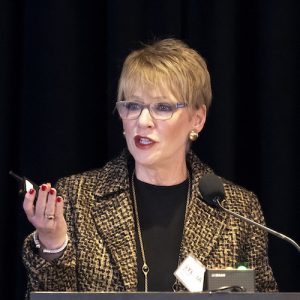 Prior to AquaBounty, Sylvia was President of StockYards, SVP of Merchandising, and President of the Manufacturing Division for US Foods. A $23 billion broad line foodservice distributor, US Foods is the the 2nd largest foodservice distributor in the US. Wulf was responsible for the P&L of the $10 billion protein and produce categories and the $1 billion Manufacturing Division of U.S. Foods Meat, Seafood and Produce operations. While leading this anchor division, Wulf developed a source to sale strategic approach that not only improved profitability but drove growth in market share at 3X the industry average. In her numerous roles responsibilities included the P&L of Perishables categories, centralized sourcing/replenishment, 15 manufacturing facilities for Meat and produce.
Prior to AquaBounty, Sylvia was President of StockYards, SVP of Merchandising, and President of the Manufacturing Division for US Foods. A $23 billion broad line foodservice distributor, US Foods is the the 2nd largest foodservice distributor in the US. Wulf was responsible for the P&L of the $10 billion protein and produce categories and the $1 billion Manufacturing Division of U.S. Foods Meat, Seafood and Produce operations. While leading this anchor division, Wulf developed a source to sale strategic approach that not only improved profitability but drove growth in market share at 3X the industry average. In her numerous roles responsibilities included the P&L of Perishables categories, centralized sourcing/replenishment, 15 manufacturing facilities for Meat and produce.
.
As of January 2019 Sylvia Wulf has taken the reins at known salmon producer and seafood innovator – AquaBounty. For the past 20 years AquaBounty has sought federal approval for their transgenic engineered fish which sets to localize domestic production while reducing the use of synthetics and antibiotics in their approach of farm raising fish. It’s not the molecular scalpel used in tweaking RNA expressions as we’ve learned about with CRISPR, it’s DNA manipulation. But, it’s done for a different purpose and with different intent than we’ve seen with past GE or GMO crops so prevalent in seed production. The IP AquaBounty is interested in moving is a methodology for producing fish, cleaner and healthier fish they say. It’s surely not designed to move more harmful proprietary chemicals sterilizing soils and the planet. And, BTW – the fish they produce are sterile, so there’s no concern with cross-pollination with natural stock.
.
It’s fascinating to explore this from a few different angles. No doubt it’s a pressing and timely subject with a stigma. We must all appreciate that this is being rolled out, now – through-out the US. AquaBounty has FDA approval and will soon be part of our current food production system. What needs to be determined is how it’s labeled. They’ve instituted numerous fail safes and they have a compelling message to why they believe the time is now to use their technology to clean-up many of the approaches used in farming fish. So, how do we all find commonality? How do we evaluate all the biological, ethical, social and environmental issues reaching our plate? Tune-In to hear more.
.
‘Nutritionist to The Hill‘ Jay Vilar joins me as a first-time co-host. Vilar is the founder, and a practitioner at ‘Nourish’ – a bespoke consulting company with a mission to educate, teach, and train people on the benefits of using food to heal your body and optimize your health. Jay has always been on the forefront of using optimal health techniques, and bio-hacking his nutrition to achieve remarkable results in his career. Jay now spends his time teaching people how to use food to heal their body and speaks to businesses on how to optimize focus & productivity using nutritional and behavioral science. Jay recently completed a Fellowship at the Rodale Institute, and just relocated from DC to join our crew in Boston.
.
Sylvia Wulf knows large-scale production and food distribution. Throughout her career she’s worked diligently to elevate standards and improve the experience for a broad swath of consumers and food animals. Tune-In to hear what she’s up to in her latest venture – for many reasons I know our audience will find intrigue in this 45 minute conversation.
.
@SWulf
co-host:
Jay Vilar
- Founder of Nourish
- A focus on Nutritional Therapy
- Rodale Institute Fellow
- Host of ‘listen to your mother’ show


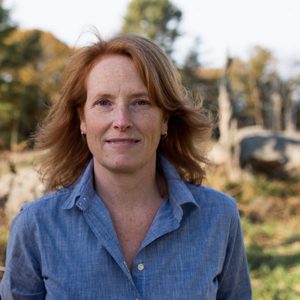 In our 45 minute conversation we discuss the ins and outs of investing in regional and sustainable food systems of the Northeast and beyond. CEI is a mission-driven lender and investor specializing in rural business development and financing. In Maine, and throughout the U.S., CEI helps to create economically and environmentally healthy communities in which all people, especially those with low incomes, can reach their full potential. CEI is unique with its dossier of offerings which include business loans, micro-loans, new market tax credits, sub-debt loans, SBA 504 loans, business plans, marketing plans, business advising, financial advising, and public policy leadership.
In our 45 minute conversation we discuss the ins and outs of investing in regional and sustainable food systems of the Northeast and beyond. CEI is a mission-driven lender and investor specializing in rural business development and financing. In Maine, and throughout the U.S., CEI helps to create economically and environmentally healthy communities in which all people, especially those with low incomes, can reach their full potential. CEI is unique with its dossier of offerings which include business loans, micro-loans, new market tax credits, sub-debt loans, SBA 504 loans, business plans, marketing plans, business advising, financial advising, and public policy leadership.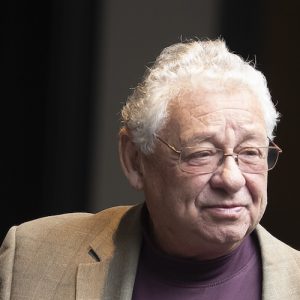 In early November 2018 Goldberg hosted The “ChooseFood” symposium in Baltimore. It was a gathering to evaluate some of the core ethical questions of food and its production. Top brass speakers shared insight on ethics of in food labor, environmental impact, externalities, animal welfare, health risk factors & new tech – all were on the docket. Coming it at from the food animal side It was a fascinating exercise for me to see how far we’ve come since the 2007 PEW commission report, what more needs to be done with food animal production, and how broad the aperture has grown to encapsulate ethics into our food and global production.
In early November 2018 Goldberg hosted The “ChooseFood” symposium in Baltimore. It was a gathering to evaluate some of the core ethical questions of food and its production. Top brass speakers shared insight on ethics of in food labor, environmental impact, externalities, animal welfare, health risk factors & new tech – all were on the docket. Coming it at from the food animal side It was a fascinating exercise for me to see how far we’ve come since the 2007 PEW commission report, what more needs to be done with food animal production, and how broad the aperture has grown to encapsulate ethics into our food and global production. Joining us for the 45 minute discussion is The Carrot Project founder and Executive Director Dorothy Suput. Suput’s commitment to a sustainable food system grew out of the incredible contrasts between Midwestern agriculture, with which she grew up, and the locally focused food and farming system in Switzerland, where she lived after graduating with a BS from Purdue University. Following graduate school at Tufts, Dorothy worked as the first regional organizer on the 1995 Farm Bill for the Northeast Sustainable Agriculture Working Group under the auspices of the Campaign for Sustainable Agriculture, and subsequently, as a consultant for business and agency.
Joining us for the 45 minute discussion is The Carrot Project founder and Executive Director Dorothy Suput. Suput’s commitment to a sustainable food system grew out of the incredible contrasts between Midwestern agriculture, with which she grew up, and the locally focused food and farming system in Switzerland, where she lived after graduating with a BS from Purdue University. Following graduate school at Tufts, Dorothy worked as the first regional organizer on the 1995 Farm Bill for the Northeast Sustainable Agriculture Working Group under the auspices of the Campaign for Sustainable Agriculture, and subsequently, as a consultant for business and agency. Faruqi’s previous work ‘Project Animal Farm’ was released in 2015. This non-fiction work looked at the world’s food system through chronicling a journey to 60 animal farms in 8 countries. Faruqi combines her hands-on immersive learning with analysis on modern global agricultural models. The well researched book comes in tow with recommendations, and food sustainability solutions for many of these international issues. She has some heavy hitters in food, agriculture and ocean health singing her praises.
Faruqi’s previous work ‘Project Animal Farm’ was released in 2015. This non-fiction work looked at the world’s food system through chronicling a journey to 60 animal farms in 8 countries. Faruqi combines her hands-on immersive learning with analysis on modern global agricultural models. The well researched book comes in tow with recommendations, and food sustainability solutions for many of these international issues. She has some heavy hitters in food, agriculture and ocean health singing her praises.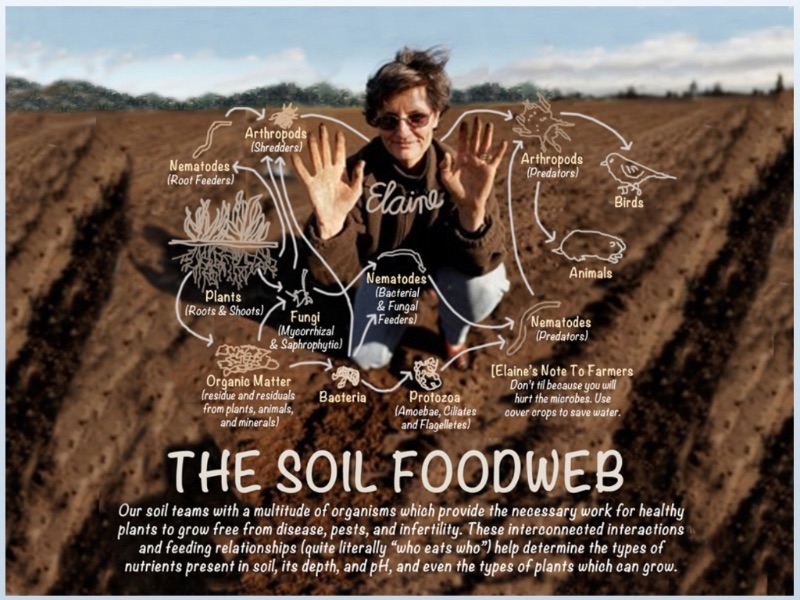
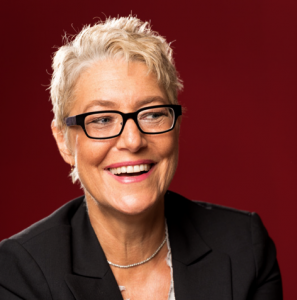 For episode 49 of Sourcing Matters we focus on Karp’s recent project – “Investigating the Role of Women, Capital, and the Transformation of Food and Agriculture.” Co-chaired by leadership at AgFunder and ‘The New Food Economy’, this analysis sets to find some answers to timely and important questions that we all need to pay more attention to. As sons, husbands, brothers & fathers – we all need to pay better attention too. Since establishing Karen Karp & Partners in 1990 she’s focused efforts on developing a range of bespoke strategies that explore the interconnections between agriculture, food, policy and people, and how to marry common interests of the for-profit and nonprofit sectors. KK&P has grown to become a nationally respected boutique consultancy with a uniquely skilled staff and a diverse roster of clients – including nearly a decade co-producing the James Beard Foundation conference.
For episode 49 of Sourcing Matters we focus on Karp’s recent project – “Investigating the Role of Women, Capital, and the Transformation of Food and Agriculture.” Co-chaired by leadership at AgFunder and ‘The New Food Economy’, this analysis sets to find some answers to timely and important questions that we all need to pay more attention to. As sons, husbands, brothers & fathers – we all need to pay better attention too. Since establishing Karen Karp & Partners in 1990 she’s focused efforts on developing a range of bespoke strategies that explore the interconnections between agriculture, food, policy and people, and how to marry common interests of the for-profit and nonprofit sectors. KK&P has grown to become a nationally respected boutique consultancy with a uniquely skilled staff and a diverse roster of clients – including nearly a decade co-producing the James Beard Foundation conference.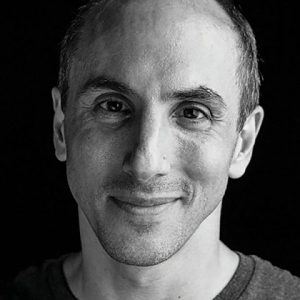 After working alongside some of the world’s best chefs at Square One, Le Cirque, and La Bernadin – Michael Leviton returned to his hometown of Newton, Massachusetts in 1999 to open Lumière. In Lumière’s first two years in business, the restaurant was recognized as one of the Best New Restaurants in America by Bon Appétit, and Michael was named a Best New Chef by Food & Wine. In 2011, Leviton opened Area Four, a wood-burning oven/bar and attached coffeehouse/bakery. Modern and minimalistic in both menu and design, each property earned local and national recognition for serving highest quality product, sourced locally and all scratch made, at a price point and in a setting that is accessible to all.
After working alongside some of the world’s best chefs at Square One, Le Cirque, and La Bernadin – Michael Leviton returned to his hometown of Newton, Massachusetts in 1999 to open Lumière. In Lumière’s first two years in business, the restaurant was recognized as one of the Best New Restaurants in America by Bon Appétit, and Michael was named a Best New Chef by Food & Wine. In 2011, Leviton opened Area Four, a wood-burning oven/bar and attached coffeehouse/bakery. Modern and minimalistic in both menu and design, each property earned local and national recognition for serving highest quality product, sourced locally and all scratch made, at a price point and in a setting that is accessible to all.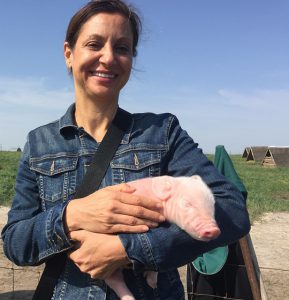 The “ChooseFood” gathering was a collective effort of the Johns Hopkins Berman Institute of Bioethics, the Johns Hopkins Bloomberg School of Public Health, and the Hopkins Center for a Livable Future. The goal of the event was to evaluate the broad reaching ethics of food, and its production. Issues like Labor, environmental impact, externalities, animal welfare, health risk factors & new tech were all part of the ethical questions for food. Maisie was asked to share with the group some of the impact her work has had, and how the commitments at Bon Appétit have influenced some vast changes in the foodservice industry.
The “ChooseFood” gathering was a collective effort of the Johns Hopkins Berman Institute of Bioethics, the Johns Hopkins Bloomberg School of Public Health, and the Hopkins Center for a Livable Future. The goal of the event was to evaluate the broad reaching ethics of food, and its production. Issues like Labor, environmental impact, externalities, animal welfare, health risk factors & new tech were all part of the ethical questions for food. Maisie was asked to share with the group some of the impact her work has had, and how the commitments at Bon Appétit have influenced some vast changes in the foodservice industry.